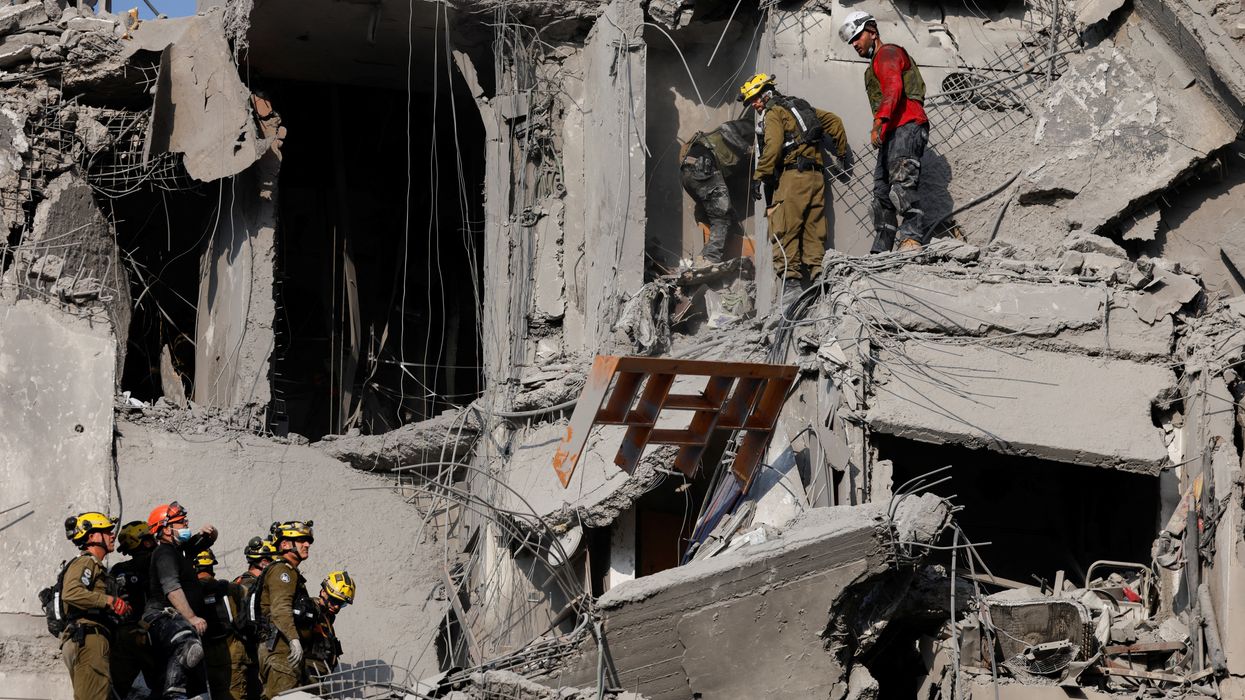ISRAELI defence minister Israel Katz said on Tuesday he had instructed the military to strike targets in Tehran after Iran fired missiles, violating a ceasefire that had come into effect following 12 days of war.
"In light of Iran’s blatant violation of the ceasefire declared by the President of the United States — through the launch of missiles toward Israel — and in accordance with the Israeli government's policy to respond forcefully to any breach, I have instructed the IDF (Israel Defence Forces)... to continue high-intensity operations targeting regime assets and terror infrastructure in Tehran," Katz said.
The Israeli military confirmed it was working to intercept Iranian missiles after detecting a launch. The attack came hours after Israel had announced a ceasefire, stating it had achieved its objectives in the bombing campaign launched against Iran on June 13.
ALSO READ: Trump says US air strikes destroyed Iran nuclear facilities
"In light of the achievement of the operation's goals, and in full coordination with President Trump, Israel agreed to the President's proposal for a mutual ceasefire," prime minister Benjamin Netanyahu said in a statement.
"Israel thanks President Trump and the United States for their support in defence and their participation in eliminating the Iranian nuclear threat," Netanyahu added.
Iran’s foreign minister Abbas Araghchi said earlier that Iran would stop its retaliatory strikes provided Israel ceased attacks by 4:00 a.m. Tehran time.
Trump declares truce, urges both sides to hold fire
US president Donald Trump announced that a ceasefire was in effect, urging both Iran and Israel not to violate the agreement. "THE CEASEFIRE IS NOW IN EFFECT. PLEASE DO NOT VIOLATE IT!" Trump posted on his Truth Social platform.
The US president had earlier stated that the ceasefire would be a phased 24-hour process starting around 0400 GMT Tuesday. Under the plan, Iran would first halt its operations, with Israel following 12 hours later.
Despite the announcement, Israeli emergency services reported that four people were killed in an Iranian missile strike. State media in Iran had earlier reported that waves of missiles were heading toward Israel.
Neither Iran nor Israel confirmed the agreement referenced by Trump. Shortly before his announcement, foreign minister Araghchi had said: "as of now, there is NO 'agreement' on ceasefire or cessation of military operations".
"However, provided that the Israeli regime stops its illegal aggression against the Iranian people no later than 4 a.m. Tehran time, we have no intention to continue our response afterwards," he said on social media.
Sirens were activated in northern Israel around the same time Iranian state broadcaster IRIB reported incoming missile waves.
At least four people were killed in a multi-wave Iranian missile attack just before the truce was expected to take effect. The Magen David Adom rescue service said three people were declared dead in Beersheba, while a fourth fatality was later added to its figures.
Explosions were also reported overnight in Tehran, with blasts in the north and central parts of the city described by AFP journalists as some of the most intense since hostilities began.
Iran, Israel trade fire since June 13 strikes
The escalation followed Israel’s strikes on June 13, which targeted Iranian nuclear and military facilities. In response, Iran launched missiles at the largest US military facility in the Middle East — Al Udeid Air Base in Qatar — just hours before Trump’s truce declaration.
Trump downplayed the attack, calling it “very weak,” and said Tehran had given advance notice. Iran’s National Security Council said the attack was in response to US strikes on its nuclear facilities, calling it proportional.
"The number of missiles launched was the same as the number of bombs that the US had used," Iran’s National Security Council said.
Ali Vaez, a senior advisor at the International Crisis Group, told AFP: "This was calibrated and telegraphed in a way that would not result in any American casualties, so that there is an off ramp for both sides."
The US had joined Israel’s campaign by striking an underground uranium enrichment facility and two other nuclear sites over the weekend.
Qatar calls Iranian strike 'blatant aggression'
Although Iran said its strike on Al Udeid was aimed at the US and not at Qatar, the Qatari government described the action as "blatant aggression" and said it reserved the right to respond proportionally.
Iran's state media quoted the Revolutionary Guard Corps as saying that six missiles had hit the base, which Qatar said had been evacuated in advance.
A US defence official said the attack involved "short-range and medium-range ballistic missiles". AFP journalists in Doha and Lusail reported explosions and saw missiles in the sky on Monday evening.
Images on Iranian state TV showed people gathering in Tehran, waving the national flag and chanting "Death to America" in response to the attack.
Qatar temporarily closed its airspace and the US embassy, along with other foreign missions, advised citizens to shelter in place.
According to Iran's health ministry, Israeli strikes have killed more than 400 people. Official Israeli figures say 24 people have been killed in Iran’s attacks on Israel.
(With inputs from agencies)





